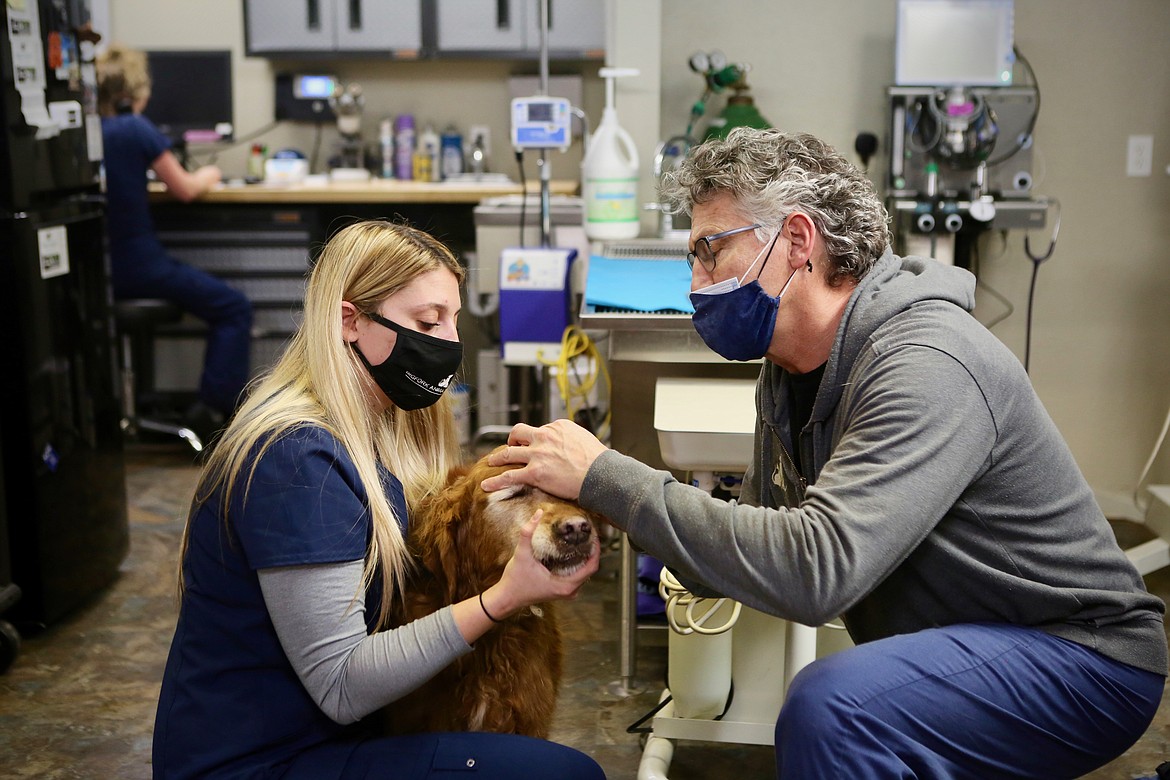Caring for creatures
Everywhere you turn, a furry face seems to look back inside Bigfork Animal Hospital on a busy Friday afternoon. A black feline luxuriates in front of a computer monitor, surveying the day’s activity in traditional cat-like fashion. Two vet techs kneel on the floor holding and comforting a curly-haired bernedoodle while she undergoes an IV treatment and above, a pair of small canines rest in cages after their respective surgeries...
Become a Subscriber!
You have read all of your free articles this month. Select a plan below to start your subscription today.
Already a subscriber? Login



